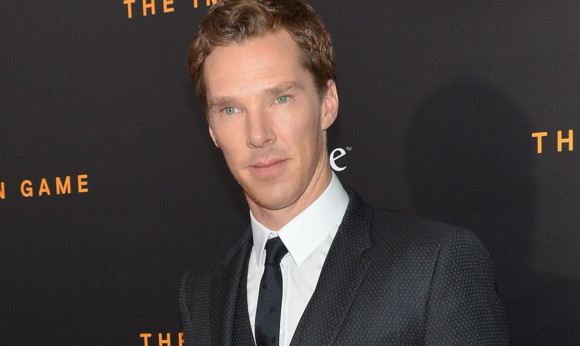
Hollywood actor Benedict Cumberbatch is to read a specially written poem at the reburial of Richard III.
The Imitation Game star is a distant relative of the last Plantagenet king and is due to star in a forthcoming BBC television series about the monarch.
His reading is happening at a Leicester Cathedral service tomorrow during which the king’s coffin, containing his mortal remains, will be lowered into a specially made tomb of Swaledale stone.
It is reported the Queen has also written a tribute in the order of service acknowledging Richard’s role in British history.
The historic moment will be witnessed by the Countess of Wessex, with the Archbishop of Canterbury, Justin Welby, presiding.
On Sunday, 35,000 people lined the route of a procession high in symbolism through the Leicestershire countryside taking Richard back to near the spot where he fell at Bosworth field, where prayers were said for all the dead of that battle.
Later, he was carried through the city centre on a horse-drawn gun carriage before being borne inside the cathedral where he was welcomed as “our brother, Richard” by Bishop of Leicester, the Rt Rev Tim Stevens.
The cathedral has said the week of ceremony offers the king the “dignity and honour” he was denied immediately after his death.
The Bishop of Leicester said tomorrow’s service would be “solemn, but hopeful” and mark the “extraordinary moment” in English history that Richard’s death on August 22 1485 represented.
“It is a major national and international occasion with a lot of ceremony,” he said.
“The peers from Bosworth families, descendants of those who fought on both sides of the battle, will be here.
“The coffin will be borne into the sanctuary of the cathedral where it will be committed to the ground, into the vault which has been prepared.”
A piece of music has been written for the occasion by the Master of the Queen’s Music Judith Weir, while Poet Laureate Carol Ann Duffy penned the 14-line poem entitled Richard to be read by Cumberbatch.
The poem is described as a meditation on the impact of the discovery of Richard’s remains under a council car park in 2012, and the legacy of his story.
It includes the line, “grant me the carving of my name”, in reference to carvings on his tomb which read Richard III, together with his symbol, the white boar.
Ms Duffy said: “It is a privilege to be involved, in a small way, in this unique event.”
The Dean of Leicester, the Very Rev David Monteith, said it was right that “the cream of writers and performers from our day help us to see our history and indeed ourselves in a new light with flair and imagination.”
University of Leicester archaeologists discovered the king under the council car park after a campaign to find him led by Philippa Langley.
An extensive series of scientific tests established the skeleton, found in a grave too short for his body, was that of the last Yorkist king.
However, his final rest was delayed by months after distant relatives brought an unsuccessful legal challenge through the courts arguing he should be reburied in York.
Richard’s story as a warrior king but also a possible suspect in the disappearance of his nephews, the two princes in the tower, still conjures people’s imaginations, with 5,000 people queuing to see his coffin on Monday.
The disappearance of his grave in the old Greyfriars church in Leicester, and rediscovery 527 years later made headlines around the world.
Despite the theme of this week’s ceremonies being around the spirit of reconciliation, there is still some discord.
An anonymous note attached to a red rose of the House of Lancaster placed among the hundreds of white Yorkist roses, outside the cathedral, read: “In memory of Henry VII – a great king for 24 years.
“His victory over the usurper and child killer at Bosworth field was superb.”

Enjoy the convenience of having The Sunday Post delivered as a digital ePaper straight to your smartphone, tablet or computer.
Subscribe for only £5.49 a month and enjoy all the benefits of the printed paper as a digital replica.
Subscribe